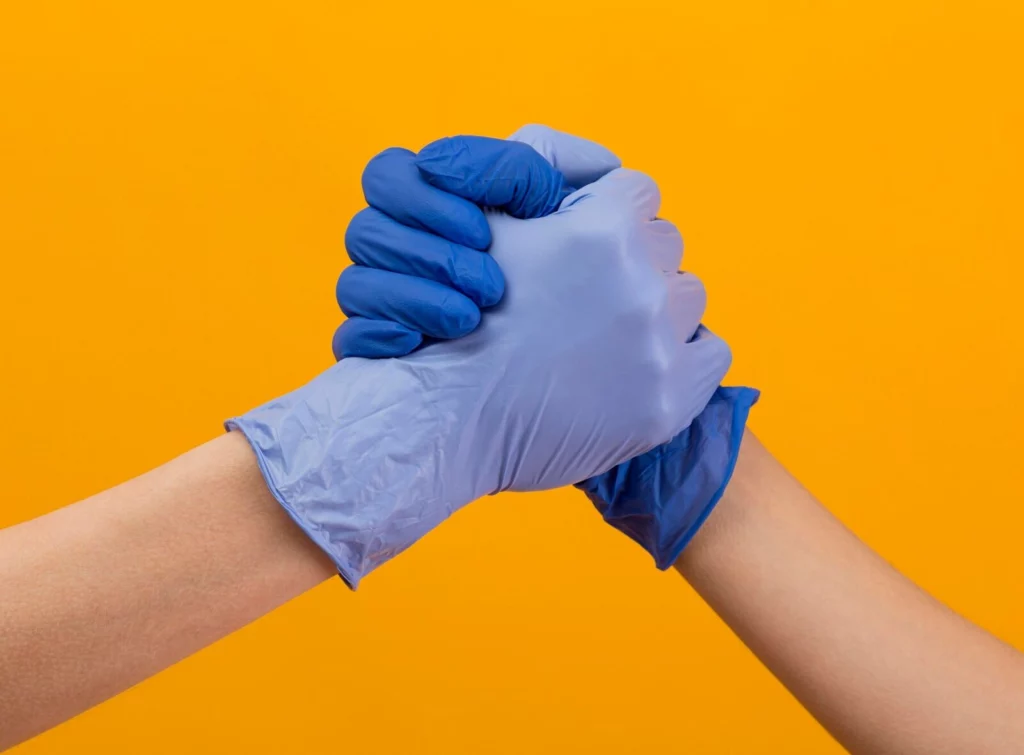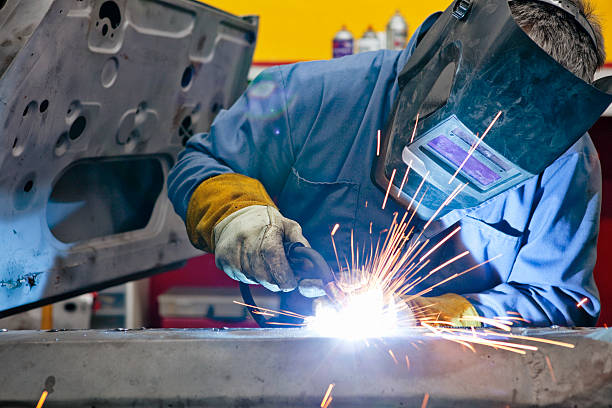
Rubber Insulating Glove Classes: A Guide To Voltage Ratings And Protection Levels
Choosing the right rubber insulating gloves can be tricky, but it’s essential for your safety. This guide will help you...

Get 20€ off on your first order!
When it comes to maintaining hygiene and safety during cleaning and sanitation tasks, vinyl gloves offer a cost-effective and versatile solution. In this guide, we’ll cover everything you need to know about choosing the right vinyl gloves for your cleaning and sanitation tasks, including material features, sizing, and application tips.
This practical guide ensures you won’t need to search further, offering comprehensive advice for both beginners and professionals.
For a broader overview, check out Vinyl Gloves: The Affordable Solution For Industrial Safety.
Vinyl gloves, also known as synthetic gloves or disposable gloves, are made from polyvinyl chloride (PVC). They’re a popular choice for cleaning and sanitation due to their affordability, chemical resistance, and suitability for short-term use. Unlike more expensive materials such as nitrile, vinyl provides a budget-friendly option without compromising essential protection.
Key benefits of vinyl gloves for cleaning and sanitation include their chemical resistance, which makes them ideal for wiping down surfaces with mild detergents. Additionally, their lightweight comfort ensures they can be worn for extended tasks such as mopping or disinfecting common areas. This versatility makes vinyl gloves a practical choice for a wide range of cleaning applications.
For more guidance on general disposable gloves, explore How To Choose The Best Disposable Gloves – A Buyer’s Guide.
Selecting the right vinyl gloves depends on the specific requirements of your cleaning or sanitation task. Let’s examine the critical factors:
High-quality vinyl gloves are essential for effective barrier protection. Look for certifications such as EN 455 compliance or labels indicating durable PVC material to ensure reliable performance.
Learn more about certifications and standards from the official EN Standard Website
Vinyl gloves are typically available in light-duty and heavy-duty options. For basic cleaning tasks, a thinner glove provides flexibility, while heavy-duty gloves are better suited for handling stronger chemicals or abrasive cleaning tools.
| Task Type | Recommended Thickness |
| Light cleaning (dusting, wiping) | 3-4 mils |
| Medium cleaning (mopping, disinfecting) | 4-6 mils |
| Heavy cleaning (chemical handling) | 6+ mils |
A well-fitting glove ensures comfort and efficiency during use. Refer to the sizing chart below for European metrics:
| Palm Width (cm) | Size |
| 7-8 cm | Small (S) |
| 8-9 cm | Medium (M) |
| 9-10 cm | Large (L) |
| 10-11 cm | Extra Large (XL) |
For a detailed guide on choosing the right size, visit How To Choose The Right Size of Vinyl Gloves.
Choose gloves based on the cleaning agents you’ll be handling. For example, vinyl gloves are ideal for non-corrosive cleaning agents. If you’re working with stronger chemicals, consider Chemical Resistant Gloves for added protection.
Single-use vinyl gloves should be discarded immediately after use to avoid cross-contamination. Be sure to follow local guidelines for waste disposal, such as separating contaminated gloves into biohazard bins or other designated containers, to ensure environmental compliance and safety.
In high-risk environments, such as hospital sanitation, consider double-gloving with vinyl gloves under a pair of Nitrile Gloves for added durability.

Vinyl gloves aren’t the only option available for cleaning and sanitation. Here’s how they compare to other types:
| Glove Type | Advantages | When to Use |
| Vinyl Gloves | Affordable, comfortable, chemical-resistant | General cleaning, low-risk sanitation |
| Nitrile Gloves | Durable, puncture-resistant, hypoallergenic | High-risk cleaning, exposure to harsh chemicals |
| Cleanroom Gloves | Sterile, low particulate levels | Specialized sanitation tasks in cleanroom environments |
Learn more about nitrile options in How To Choose The Right Nitrile Gloves – A Buyer’s Guide.
Purchasing high-quality vinyl gloves is crucial for safe and efficient cleaning. Visit Droppe’s Vinyl Gloves Collection to explore a wide range of options suited for cleaning and sanitation tasks.
If you require gloves for more specialized purposes, check out:
We hope this guide has been helpful in navigating the essential factors for choosing the best vinyl gloves, from material quality to application needs. Whether you’re maintaining hygiene in a commercial setting or tackling sanitation tasks at home, we’re here to support your efforts.
Explore the full range of Vinyl Gloves on Droppe, where trusted brands ensure quality and reliability. Have questions or need advice on finding the perfect gloves? Don’t hesitate to reach out—we’re always here to help ensure your safety and confidence in every purchase.
For additional insights into disposable glove options, explore How To Choose The Best Disposable Gloves – A Buyer’s Guide.
– The Droppe Team
No, vinyl gloves are not biodegradable as they are made from polyvinyl chloride (PVC), a type of plastic. However, some manufacturers offer more eco-friendly disposal options or recyclable gloves to reduce environmental impact.
While vinyl gloves are latex-free and typically hypoallergenic, some individuals may experience irritation due to additives or prolonged use. If irritation occurs, consider switching to gloves made of alternative materials like nitrile.
Yes, many vinyl gloves are food-safe, but it’s essential to check the packaging for compliance with food safety standards such as FDA approval or EN 1186 certification before use in food preparation.
Vinyl gloves should be stored in a cool, dry place away from direct sunlight and heat sources. Excessive exposure to heat or moisture can compromise their durability and performance.
No, disposable vinyl gloves are designed for single use only. Reusing them can increase the risk of contamination and compromise hygiene and safety during cleaning or sanitation tasks.
Thank you! You've signed up for our newsletter.



















Choosing the right rubber insulating gloves can be tricky, but it’s essential for your safety. This guide will help you...

Choosing the right Arc Flash Gloves is key to ensuring your safety in high-risk environments like electrical maintenance or construction....

Choosing the right Rubber Insulating Gloves is essential for safety in electrical work, but with so many options, it can...

Choosing the right rubber insulating gloves can be tricky, but it’s essential for your safety. This guide will help you...

Choosing the right Arc Flash Gloves is key to ensuring your safety in high-risk environments like electrical maintenance or construction....

Choosing the right Rubber Insulating Gloves is essential for safety in electrical work, but with so many options, it can...
Get 10€ off on your first order!
Save 30% by buying directly from brands, and get an extra 10€ off orders over €100
Save 30% by buying directly form brands, and get an extra 10€ off orders over €100